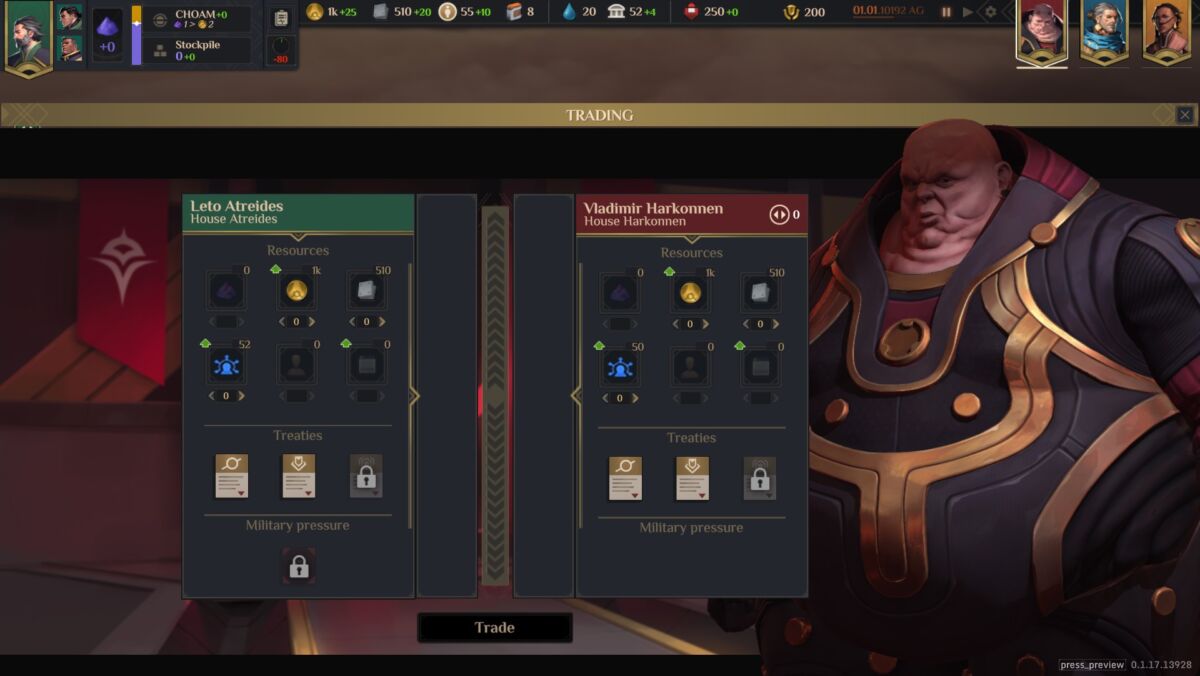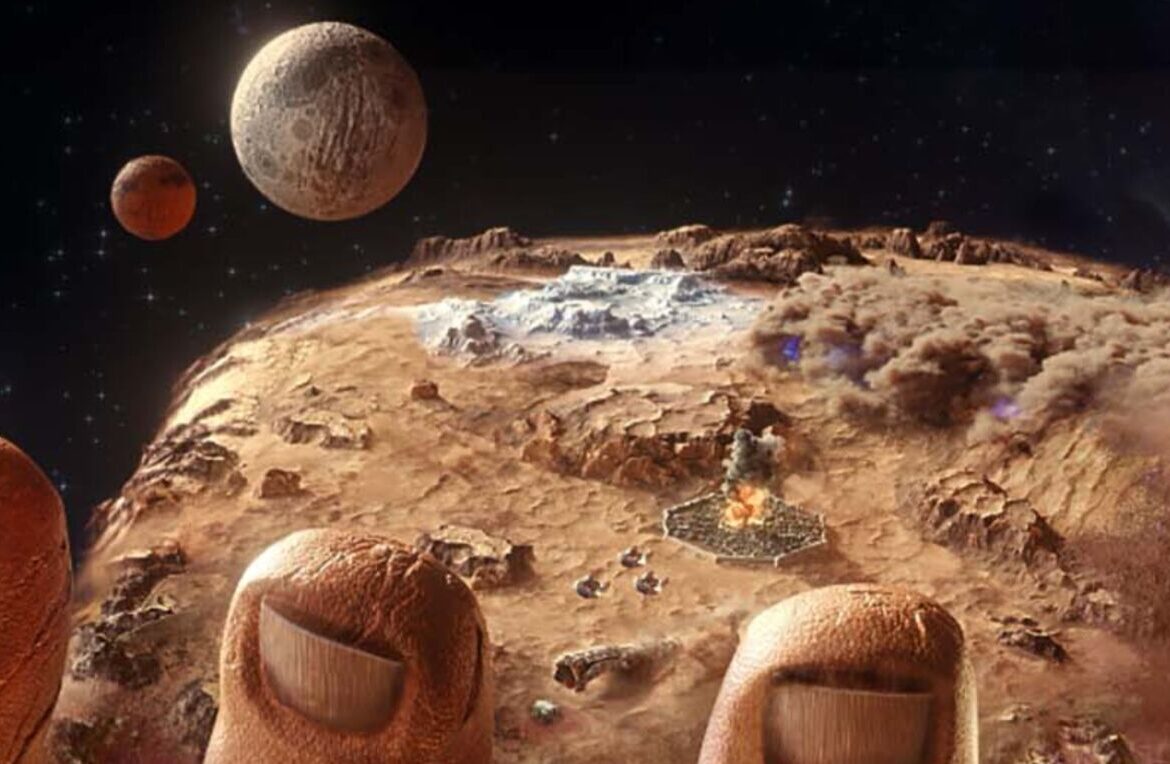It’s been a long time coming for the godfather of modern sci-fi to make a comeback to gaming following the excitement from Denis Villeneuve’s recent adaptation of Dune. It’s great to see a game finally come along and pay respects to the roots of virtual strategy gaming that are also rooted in the Dune universe. So, how does Shiro Games’ Dune: Spice Wars promise to bring Frank Herbert’s seminal work to life?
Dune: Spice Wars, currently in an Early Access state, is slated to be a real-time 4X strategy game with a focus on resources, diplomacy, and intrigue. Players will choose one of four factions: House Atreides, House Harkonnen, Smugglers, or Fremen and vie for military, political, and diplomatic dominance of the most important planet in humanity’s empire. There’s currently only one single-player skirmish mode, though the developers have indicated that multiplayer and additional modes are on the game’s roadmap.

To immediately put any anxiety to rest, Dune: Spice Wars looks promising with a solid foundation of concepts and ideas, as well as a respectful and authentic adaptation of the lore. This goes in contrast with some of the earliest Dune strategy games, though exemplary in their own right, that bent the lore for the sake of gameplay. Fans of Herbert’s writing and of authentic adaptations will have plenty to be excited about in Spice Wars.
Speaking of adapting the world of Dune, Spice Wars’ presentation does wonders in giving the planet of Arrakis and the factions an engaging presence. Though the developers have opted for a more animated film look over hyperrealism, the art direction is consistent and gives the game a strong visual core, which brings the game to life wonderfully. The audio, from the rustle of sand in the wind during quieter moments and the horrified cries of battle, all the way to the fittingly thematic score, do an excellent job of imbuing the seemingly lifeless desert with vibrancy, dynamism, and a sense of wonder.

Gameplay-wise, the developers chose to focus the gameplay on resource gathering and management, which both fit the world’s themes and provide compelling gameplay, such as the central constant balancing act between producing Spice for the Imperial Tax and selling for profit to Dune’s interstellar corporation, CHOAM. Combined with the procedurally generated map of Arrakis for every playthrough, the early game of Spice Wars is excellent, from the exploration of the land with ornithopters, to managing scarce resources to optimize your growth. It also helps that each of the four factions are distinct and have clear playstyle differences despite sharing many mechanics and systems.
Unfortunately, the middle and later stages of the game are where Spice Wars falters, as its pacing slows way down and players don’t really have much to do to keep themselves engaged and the AI is too passive except on the highest difficulties to effectively challenge you. This comes from unpolished balancing and value sets where players need to get way too much to win, yet there aren’t enough systems to experiment and try new things and approaches. Also, players have little they can do to interact with the other factions outside of diplomacy on a more practical level, with troops, maneuvers, and raids to make the game truly strategically dynamic.

This leads us to our greatest source of both concern and excitement for Spice Wars: the fact that the game, while accessible with its easy-to-understand systems, lacks depth to its core systems. In addition, the balancing for the various victory conditions asks the players to endure a significant amount of repetitive grind in the mid and late stages of the game where players won’t have enough systems to play around with to smooth out the grind.
On the flip side, we’re also excited because knowing that the developers are aiming for authenticity in their adaptation, there’s an incredibly deep well of potential mechanics to draw from based on the source material to add new dynamics and address some of Spice Wars’ current issues. Shiro Games’ other Early Access project, Wartales, and their treatment of its development cycle only adds more confidence that Spice Wars will receive the same level of respect and care.
Dune: Spice Wars is off to a promising start with the license clearly getting the respect it deserves, while also doing a lot of the heavy lifting for the world-building and strategic gameplay. What gives the game a head start is that the developers have clearly teased out a solid gameplay core that needs a fair amount of balance tightening and a whole lot of content enrichment. In its current state, it’s perhaps a bit too shallow and unbalanced to jump straight in, but as the developers dig deeper into Frank Herbert’s works, Dune: Spice Wars can become something quite special for the strategy genre.
Dune: Spice Wars is available on PC. A Steam key was provided by PR for the purpose of this preview.
READ NEXT: Dune (The Graphic Novel): Lessons In Adapting A Classic
Some of the coverage you find on Cultured Vultures contains affiliate links, which provide us with small commissions based on purchases made from visiting our site.

